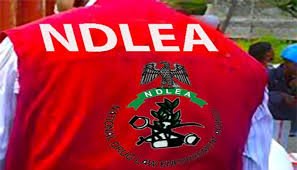West Africa experienced internet service disruptions on Thursday, March 14, due to multiple cuts in major submarine cables in the Red Sea, the NigerianCommunication Commission (NCC) has said.
The outage affected Nigeria, Ghana, Côte d’Ivoire, Liberia, and parts of South Africa.
According to the NCC, the undersea cable faults resulted in data and fixed telecom service disruptions across the region. NCC pinpointed the location of the cuts somewhere between Cote d’Ivoire and Senegal, with a secondary disruption reported in Portugal.
“The cuts occurred somewhere in Cote d’Ivoire and Senegal, with an attendant disruption in Portugal,” said NCC Director of Public Affairs, Reuben Muoka.
The damage affected critical infrastructure, including the West African Submarine Cable (WASC), African Coast to Europe (ACE) submarine cable, and MainOne submarine cable, all landing on Nigerian shores. Banks, payment service providers, schools, and businesses relying on these ISPs faced significant service disruptions.
Telecom operators and cable companies, including WACS, ACE, SAT3, and MainOne, have begun repairs, promising swift restoration. The Association of Licensed Telecom Operators of Nigeria (ALTON) Chairman, Gbenga Adebayo, assured that services would be back online “within the shortest possible time.”
While acknowledging the disruption, ALTON highlighted that Nigeria’s internet infrastructure is less reliant on the affected Red Sea cable due to its connection to multiple submarine cables from Europe and Asia.
Adebayo explained, “We have several submarine cables landing at the seashore of the country… Nigeria is not significantly impacted by the cut on that particular submarine cable.”
Service providers are rerouting traffic to functional backup cables, minimising the impact for most Nigerian users. However, some ISPs with indirect connections to the damaged cable may experience temporary service slowdowns.
The cause of the undersea cable cuts remains under investigation. While sabotage is a possibility, telecommunication companies believe it’s less likely due to the depth and complexity involved in damaging such infrastructure. Natural disasters or accidental impact from maritime activities are considered more probable causes.
Telecom operators like MTN and financial service providers like 9PSB proactively inform their customers about the disruptions and ongoing restoration efforts.
“Valued customers, this is to inform you about an ongoing emergency service resolution following a challenge with our ISPs,” said 9PSB in a message to their customers.
Similarly, MTN wrote in a message to its customers, “We apologise for the challenges you may be experiencing with internet speed and accessing data services at the moment. This is as a result of damage to international undersea cables across East and West Africa. The repair process is ongoing to resolve the situation as soon as possible.”
























